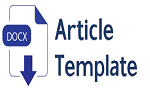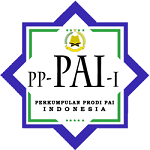Implementation of The Merdeka Curriculum at Darul Mursyid Islamic Senior High School
Abstract
Darul Mursyid Islamic Senior High School (Madrasah Aliyah Darul Mursyid) is an Islamic educational institution that plays a significant role in shaping the educational landscape for students at the secondary level. Understanding the current curriculum implementation practices—including teaching methods, assessment systems, and educational outcomes—is essential for evaluating their effectiveness and identifying areas for improvement. The curriculum is a vital component of the education system, serving as a guideline for the teaching and learning process. In madrasahs, the curriculum not only includes academic content but also emphasizes the inculcation of religious and moral values. This article aims to analyze the implementation of the curriculum at the school and the challenges encountered. The teaching methods at Madrasah Aliyah Darul Mursyid are likely influenced by traditional Islamic educational practices, which emphasize the study of religious texts such as the Qur’an and Hadith. This is a common characteristic of the madrasah-style education system, which focuses on traditional Islamic sciences. The assessment system in Islamic educational institutions like Madrasah Aliyah often includes both formative and summative assessments. These assessments are designed to evaluate students’ understanding of both religious and secular subjects. The integration of contextual teaching and learning approaches, as observed in other madrasah environments, can also be applied to enhance science learning outcomes. The success of curriculum implementation can be measured by students' ability to apply their knowledge in real-world contexts and their readiness for higher education or vocational activities. The purpose of this study is to identify and gather information regarding the implementation of the Merdeka Curriculum at Darul Mursyid Islamic Senior High School.
Keywords
Full Text:
PDFReferences
Badu, Syamsu Qamar, Novianty Djafri, dan Wilda Rizkiyahnur Nasution. “TRANSFORMATION OF NATIONAL EDUCATION THROUGH THE INDEPENDENT CURRICULUM: POLICY ANALYSIS OF THE MINISTER OF EDUCATION, CULTURE, RESEARCH, AND TECHNOLOGY REGULATION NUMBER 12 OF 2024 AND THE CHALLENGES OF ITS IMPLEMENTATION AT VARIOUS EDUCATIONAL LEVELS (LITERATURE REVIEW METHOD).” International Journal of Teaching and Learning 2, no. 11 (2025): 1368–77.
Chimbunde, Pfuurai, dan Boitumelo Benjamin Moreeng. “The sustainability of curriculum reform and implementation through teacher participation: Evidence from social studies teachers.” Journal of Curriculum Studies Research 6, no. 1 (2024): 83–98.
Fatimah, Siti, dan Sri Sumarni. “A HOLISTIC APPROACH TO ISLAMIC BASIC EDUCATION: SYNTHESIZING THE DEVELOPMENT OF STUDENTS’POTENTIAL FROM IN℡LECTUAL, SPIRITUAL AND EMOTIONAL ASPECTS.” Pionir: Jurnal Pendidikan 13, no. 2 (2024): 106–16.
Hamidi, Abdennour, dan Souad Belabbes. Terminological Dictionaries between the Integration of Sciences and Harmony of Arts: Al-Khawarizmi’s Mafatih al-Uloom (387 AH) and Al-Qannuji’s Abjad al-Uloom (1307 AH) as a Model. 2025. https://imcra-az.org/uploads/public_files/2025-06/8807.pdf.
Hayat, Eka Wardatul, dan Adiyono Adiyono. “Innovative strategies for developing competency-based learning evaluation in Madrasah Ibtidaiyah under the independent curriculum.” Journal of Elementary Education Research and Practice 1, no. 1 (2025): 49–62.
Hudaya, Hairul, dan Mahyuddin Barni. “Transformation of Education: Pattern of Integration of Science in Learning at UIN Antasari Banjarmasin.” SYAMIL: Journal of Islamic Education 12, no. 1 (2024): 95–106.
INDRIANI, FITRI, BATRISYIA HIDAYAH BAHARUDDIN, MOHD AMZARI TUMIRAN, dan NASHARUDDIN MOHAMMAD. “INTEGRATING SCIENCE AND RELIGION THEMATICALLY: A STUDY AT SDIT ALAM NURUL ISLAM, YOGYAKARTA.” Quantum Journal of Social Sciences and Humanities 6, no. 3 (2025): 34–54.
Ismiati, Nur. “Implementing STEAM education in the independent curriculum: Enhancing 21st century skills.” Tadibia Islamika 4, no. 1 (2024): 21–27.
Li, Chengquan, dan Can Zhang. “Exploring the Current Landscape of Primary School Physical Education Within the Framework of the New Curriculum Reform: A Quality Evaluation Model Perspective.” Journal of the Knowledge Economy 15, no. 4 (2024): 20677–98. https://doi.org/10.1007/s13132-024-01873-5.
Mackenzie, Alistair W. “Faith and Doubt: A Comparative Study of their Epistemic Status in Religious Traditions.” Cultura: International Journal of Philosophy of Culture and Axiology 22, no. 4 (2025). https://culturajournal.com/submissions/index.php/ijpca/article/view/1271.
Ng, Eddy S., Pauline Stanton, Chidozie Umeh, dkk. “Megatrends affecting the world of work: Implications for human resource management.” Personnel Review, Emerald Publishing Limited, 2025. https://www.emerald.com/pr/article/doi/10.1108/PR-02-2025-0100/1255519.
No, Law. “of 2003 concerning the National Education System.” Jakarta: Ministry of Education, t.t.
Putrawadi, Putrawadi, Juandra Prisma Mahendra, dan Lalu Marzoan. “The Role of Teachers in Improving Student Learning Achievement at SDN 2 Gondang in the 2024/2025 School Year.” International Journal of Education, Information Technology, and Others 8, no. 3. B (2025): 74–81.
Razali, Fazilah, N. Abdul Majid, A. A. Azrin, dan W. B. Quah. “Exploring academic performance among gifted and talented students: a comprehensive review.” International Journal of Academic Research in Progressive Education and Development 73, no. 1 (2024): 334–47.
Rosado, Susana, dan Jorge Tavares Ribeiro. “Ask New and Challenging Questions Towards Reasoning Skills: Active Approaches in Higher Education.” Dalam Transdisciplinary Approaches to Learning Outcomes in Higher Education. IGI Global, 2024. https://www.igi-global.com/chapter/ask-new-and-challenging-questions-towards-reasoning-skills/353048.
Sanjani, M. Aqil Fahmi. “The impact of school principals on graduate quality through character education initiatives.” Journal of Educational Management Research 3, no. 1 (2024): 30–46.
Sugiyono. Metode Penelitian Kuantitatif Kualitatif. Alfabeta, 2017.
Surbakti, Seni Sehati Br, Rahimul Harahap, dan Uswatun Hasanah. “Future perspectives on the islamic personality model: Integrating spiritual, moral, intellectual, social, personal, and behavioral dimensions for holistic development.” Journal on Islamic Studies 1, no. 1 (2024): 17–35.
Yang, Junfeng, Ruyi Lin, Yao Sun, Juan Chu, dan Natalia Amelina. “Leveraging smart education for sustainable development in the digital era: insights from China’s four key pillars.” Tecnologias, Sociedade e Conhecimento 10, no. 2 (2023): 10–37.
Anggraini, D. L., Yulianti, M., Nurfaizah, S., & Pandiangan, A. P. B. (2022). Peran guru dalam mengembangan kurikulum merdeka. Jurnal Ilmu Pendidikan Dan Sosial, 1(3), 290-298.
Yunita, Y., Zainuri, A., Ibrahim, I., Zulfi, A., & Mulyadi, M. (2023). Implementasi kurikulum merdeka belajar. Jambura Journal of Educational Management, 16-25.
Zamili,U.(2020).Peranan Guru Dalam Pengembangan Kurikulum DiSekolah. Jurnal Pionir, 6, 311–318
Irman, Iim Wsliman, Waska Warta, Sayid Muhammad Rifky Naufal, “Manajemen Implementasin Dari Bangsanalkurikulum Berbasis Ispendidikan Sekolah Asrama Lamic Untuk meningkatkan Kualitas Madrasah Aliyah” Jurnal Ilmu Kemanusiaan, Ilmu Sosial dan Ilmu Politik, no. 1 (2023): 22–29.
Nursyamsiah, Wahyudin Nur Nasution dan Chandra Wijaya, “Strategies For Meeting The Standards Of Educators And Education Personnel In Islamic Boarding Schoolbased Madrasas” Jurnal Pendidikan Islam, no. 1 (2022): 519–531.
Hajita, M. Paradigma integrasi agama Dan sains dalam pembelajaran pendidikan agama Islam. Ta'lim: Jurnal Studi Pendidikan Islam, 7(2) (2024), 265-289.
Assyakurrohim, D., Ikhram, D., Sirodj, R. A., & Afgani, M. W. (1951). Metode Studi Kasus dalam Penelitian Kualitatif Jurnal Pendidikan Sains dan Komputer Metode Studi Kasus dalam Penelitian Kualitatif. December 2022.
Kementerian Pendidikan dan Kebudayaan Republik Indonesia. (2020). Profil Pelajar Pancasila.
Kementerian Agama Republik Indonesia. (2021). Rahmatan lil Alamin: Konsep dan Implementasi.
Darul Mursyid. (2023). Laporan Tahunan Program P5PPRA
Kementerian Agama Republik Indonesia. (2023). Pengembangan Profesi 75.000 Guru Madrasah Berbasis Sistem Digital.
Kementerian Agama Republik Indonesia. (2023). MGMP dan Peningkatan Kompetensi Guru Madrasah.
Kementerian Agama Republik Indonesia. (2023). Kemenag Gelar Peningkatan Kemampuan Kontekstual Guru Madrasah Pendidikan Islam Kemenag.
Kementerian Agama Republik Indonesia. (2018). Kemenag Berdayakan KKG/MGMP Untuk Pengembangan Kompetensi Guru Madrasah.DOI: https://doi.org/10.24952/fahmina.v2i2.15400
Refbacks
- There are currently no refbacks.
Copyright (c) 2025 Hendra Irwandi Siregar, Kholidah Hannum Hasibuan

This work is licensed under a Creative Commons Attribution-ShareAlike 4.0 International License.
Index By
Editorial Office:
Pascasarjana UIN Syekh Ali Hasan Ahmad Addary Padangsidimpuan; Jl. T. Rizal Nurdin Km. 4,5 Sihitang 22733 Padangsidimpuan, North Sumatera, Indonesian.Phone: (+62) 634 22080 Faximili: (+62) 634 24022 email: fahmina@uinsyahada.ac.id

This work is licensed under a Creative Commons Attribution-ShareAlike 4.0 International License.











